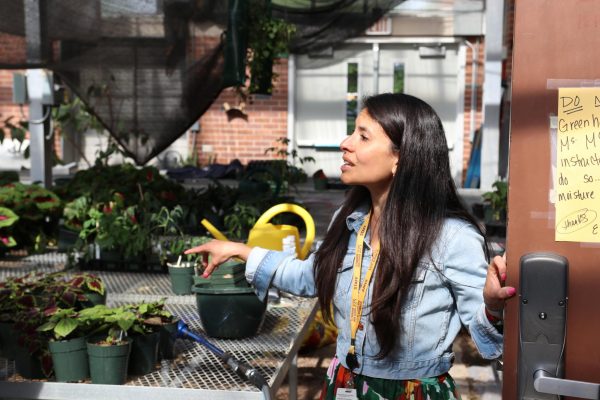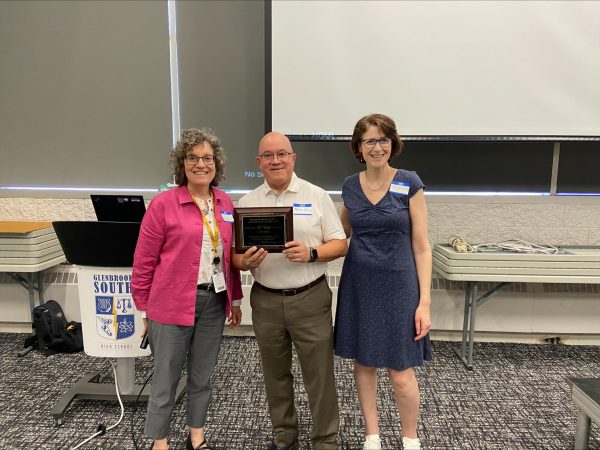Fagel perserveres, defies cancer diagnosis
October 4, 2019
While most people spend their birthday celebrating the life they’ve lived, Principal Dr. Lauren Fagel feared for her own life when her doctor said her mammogram results were “more suspicious than not.” The diagnosis of stage one breast cancer, or invasive ductal carcinoma, came the next day following a biopsy at Glenbrook Hospital, which turned her summer to a life-changing world of research and recovery.
“The nurse took me into a room to schedule my biopsy, and she said ‘Just because you’re having a biopsy doesn’t mean you have cancer,’” Fagel said. “But I could totally tell from the doctor’s phrase ‘more suspicious than not’ that [it was cancer].”
Johns Hopkins Medicine, a university research center, reports that invasive ductal carcinoma constitutes 80 percent of breast cancer diagnoses, making it the most prevalent form of breast cancer. Fagel’s treatment plan consisted of a lumpectomy, a surgery that involves removal of the malignant tumor; radiation therapy, which she began on Sept. 9; and long-term drug therapy, which reduces the patient’s risk of recurrence.
“[Chemotherapy] was my biggest fear,” Fagel said. “Then I found out that I wasn’t going to be recommended for it and I was like ‘I’ll take anything [over chemotherapy]. Radiation? No problem.’”
Starting with a card from the football team, Fagel said she has received an overwhelming amount of well wishes from the Glenbrook South community. Her decision to send an email early on to parents, staff, and students was motivated by her desire to inform the school community about her situation accurately and on her own terms, so as to avoid whispers and rumors.
“I’ve gotten so many sweet responses,” Fagel said. “It’s not so much how the diagnosis has impacted my role as principal, it’s more how being principal has interacted with that.”
The hardest thing throughout the process was informing her family of her diagnosis, Fagel mentioned. Fagel said she did not want to worry her family, although she knew she’d have the strong support system. Fagel emphasized how her cancer continued to concern her family, even though she did not feel sick.
“Even though I kept reiterating that I was going to be okay, my oldest daughter said, ‘I believe you when you say that, but this is so hard and scary,’” Fagel said. “None of us really wanted [my cancer] to be a part of our story, but it was.”
Breast cancer has a large support system; however, Fagel explained that she’s not ready to be a part of that community. She felt as though she had not processed the whole thing, and being a part of walks, fundraisers, and events in honor of her is not something she feels is right.
“I admire the people who are willing and able to use their [breast cancer] experience for good, but right now, I’m just not at that point,” Fagel said. “I don’t feel right being on the receiving end of all of that.”
As a result of Fagel’s diagnosis, her family has been very supportive and has tried to help her.
“Towards the end of the summer, we were shopping and I was walking pretty slow since I was tired from the surgery,” Fagel said. “I noticed that [my daughter] was walking right along with me, and she stopped and turned to me and said, ‘Do you need me to slow down?’ That moment was really sweet.”








